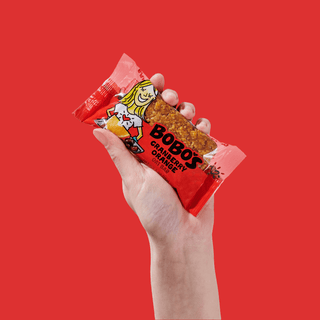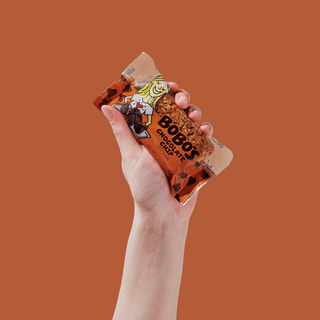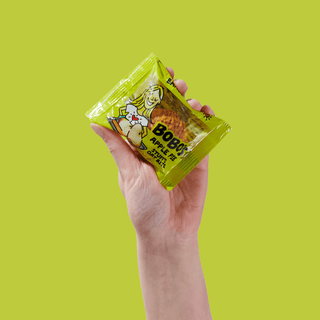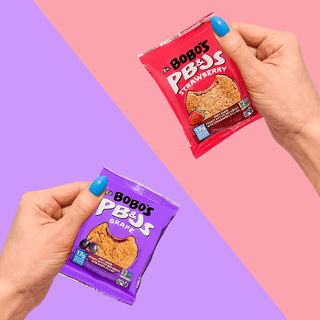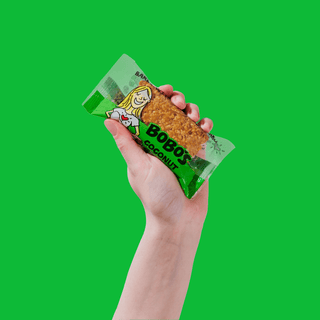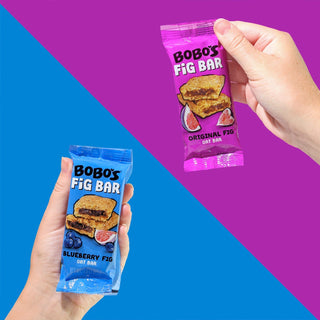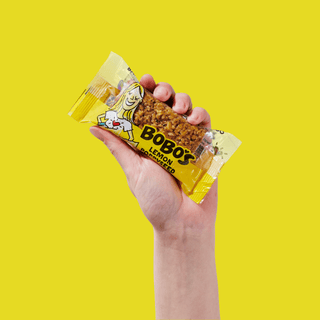By Emma Caplan-Fisher
While small amounts of processed food can be part of a healthy diet, it's easy to let it become too much of what we consume. If you're trying to make a healthier change, cutting out most processed foods from your diet is a great place to start. Of course, it can't realistically be 100% of the time, and that's okay.
Here, we'll answer the question of what are processed foods and explore why they're typically bad for us, ideas on how to avoid them, and specific food swaps you can make to cut down on processed products.
What are processed foods?
Processed foods are changed from their original state, whether through cooking, freezing, dehydrating, canning, or packaging.
Not all processed foods are created equal, as canned, frozen, or dried items (like dried beans and canned or frozen vegetables) are minimally processed and still retain several nutrients. Whole grain bread, milk, and other items do as well.
On the other hand, ultra-processed foods, like packaged bread, snacks, candy, frozen meals like pizza, sweetened yogurt and cereals, and processed meats, are often what we think of when it comes to unhealthy processed foods.
Ultra-processed foods include ingredients you won't have at home, like cellulose powder or high-fructose corn syrup. These foods are designed in a lab to be appealing and taste the same each time. They're often high in fat, sugar, and sodium and typically come in eye-catching packaging.
Why is processed food often bad for us?
Many processed foods, particularly those that are ultra-processed, are usually bad for us. This is because they lose many of their nutrients and lack fiber, vitamins, and minerals that would be present in the whole food version or minimally-processed version of that product.
For example, corn on its cob contains plenty of nutrients, vitamins, minerals, and fiber. However, once it's frozen, canned, and packaged — and, especially if it's turned into ultra-processed foods like cereal and chips — those healthy elements are no longer present.
As well, processed foods often contain more sugar, salt, saturated fat, preservatives, and/or additives than you'll find in whole foods.
Diets higher in ultra-processed foods have been associated with higher rates of breast cancer and heart disease, weight gain and obesity, and a greater risk of getting type 2 diabetes.
How to avoid processed foods: Tips for consuming less of them
With just a few changes to your eating habits, you'll be leading a healthier lifestyle with more non-processed foods before you know it. Here are 10 tips to help you get there.
1. Embrace eggs
Eggs are a super simple, filling, and tasty alternative to processed foods, any time of day. They're a great source of protein and contain many vitamins and minerals. For example, you can replace breakfast foods like sweetened yogurt or cereal with scrambled or sunny-side-up eggs or a veggie omelet or frittata.
2. Choose whole grains over refined grains
Foods made with refined grains, like white bread, pasta, and rice, are processed and left without most of their vitamins and minerals, making them less nutritious than alternatives made with whole, unrefined grains — like brown rice and whole wheat tortillas, bread, and pasta. These types of grains are higher in vitamins, minerals, fiber, protein, and antioxidants, will keep you fuller longer, and can help lower your risk of health issues.
3. Make your own staples and snacks
You can easily replace processed foods with healthy homemade staples and tasty snacks. For example, make your own yogurt, salad dressings, sauces, and nut butters. Or, save time by swapping things like sweet, processed cereals for oatmeal (try it plain with some cinnamon and spice) or flavored yogurt for plain with fresh fruit. For healthy sweets alternatives and other snacks, try your hand at homemade granola bars, veggie chips, and trail mix as healthier, nutrient-dense alternatives to store-bought versions.
4. Buy fresher food more often, or stock up on frozen items
If you can get to a grocery store regularly, try forming the habit of shopping every few days (or more) for just what you need right away. This means any fresh produce you buy will get eaten quickly and won't have the chance to spoil. Otherwise, stock up on plain frozen vegetables to keep on hand in the freezer for various recipes.
5. Read and compare labels
When you do need to buy packaged items (it will still happen), be mindful to read the labels and compare ingredients across brands and products before selecting (and watch for relative serving sizes, since this can vary and daily values and calorie counts will reflect accordingly). An item's first three ingredients indicate most of what's in it. If you see the "3S's" — sugar, sodium, and saturated fat — any refined grains, and/or trans fats (hydrogenated oils), it usually means the product is ultra-processed and not healthy.
6. Cook with more fresh foods
A tasty, easy way to avoid processed foods is to fill up your plate with veggies. Whether that looks like spinach in eggs or potatoes, broccoli or carrots in casseroles, collard greens or arugula in sauces, or fruit in oatmeal, you'll fill up on the good stuff faster.
7. Meal prep in advance
When you shop in bulk and dedicate time to meal prep — like chopping vegetables, cutting up tofu, cooking rice or other grains, or mixing sauces and dressings — you can save a ton of time later and enjoy fresh, unprocessed, healthy snacks and meals every day of the week.
8. Watch out for sneaky advertising
Keep an eye out for keywords like organic, gluten-free, or vegan. Many people automatically associate these and similar terms with healthy foods — which isn't always the case, especially if they're processed. Go back to reading nutrition labels and critically assessing if it's a good choice by how many and quantity of whole foods an item contains.
9. Concoct a homemade drink
If you're someone who loves sipping on a thirst-quenching soda or juice, try alternatives like fruit, veggie, and herb-infused water, flavorful coffee that doesn't need sugar, or a protein, fiber, and fruit-filled smoothie. This will help you reduce your sugar and calorie intake while getting the nutrients your body needs.
10. Go easy on yourself
Remember that you're only human, and no human is perfect. If you know you've got a fair bit of work ahead to eliminate processed foods from your diet, take it in steps and start slow, without comparing yourself to others – we're all different. This way you won't get overwhelmed and risk giving up altogether. For example, you could start with your breakfast cereal by swapping out the sugary one you might be used to with oatmeal every other day before making it a daily change.
What to eat instead of processed foods
Here are some common processed foods to avoid and easy, healthy alternatives you can swap them for.
| Processed Food | Better Alternative |
|
Packaged snacks (e.g. cookies, chips, candy, granola bars, energy bars)
|
Dried fruit and nuts (no added salt, sugar, or oil), low glycemic snack foods
|
|
Packaged bread, white rice or pasta
|
Whole grain starchy carbohydrates (e.g. fresh whole wheat bread, brown rice or pasta)
|
|
Breakfast cereal
|
Homemade oatmeal, plain yogurt (no added sugar)
|
|
Sausages, hot dogs, cold cuts
|
Eggs, tofu, other plant-based proteins
|
|
Microwavable meals, fast food
|
Pulses and legumes (e.g.lentils, chickpeas), fruit and vegetables (fresh and frozen), plant-based proteins
|
|
Soda and carbonated drinks
|
Coffee, tea, plain or fruit-infused water
|
|
Jarred dressings and sauces
|
Homemade vinaigrette and sauces
|

